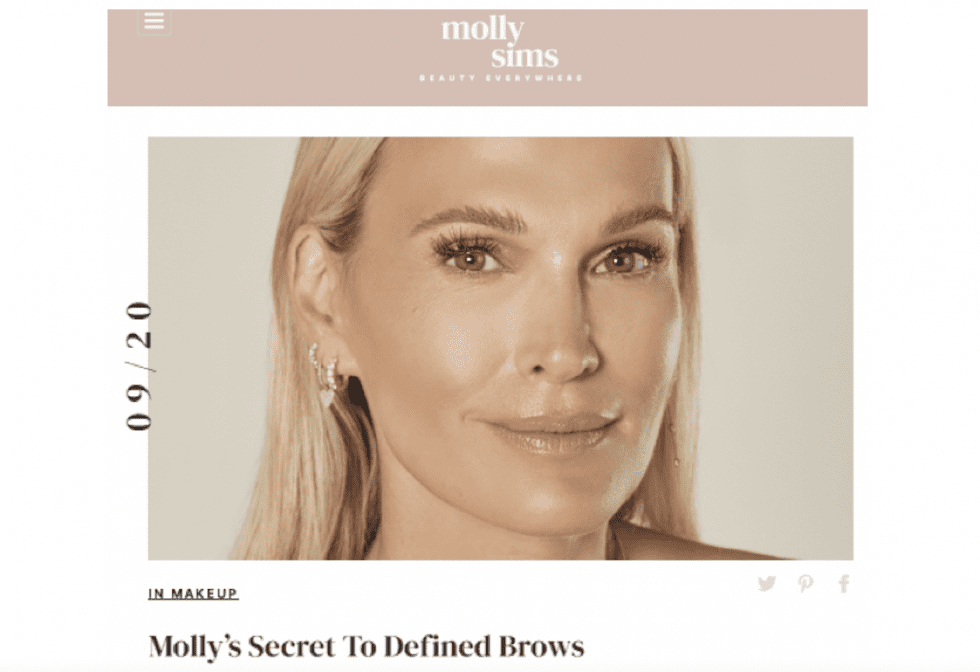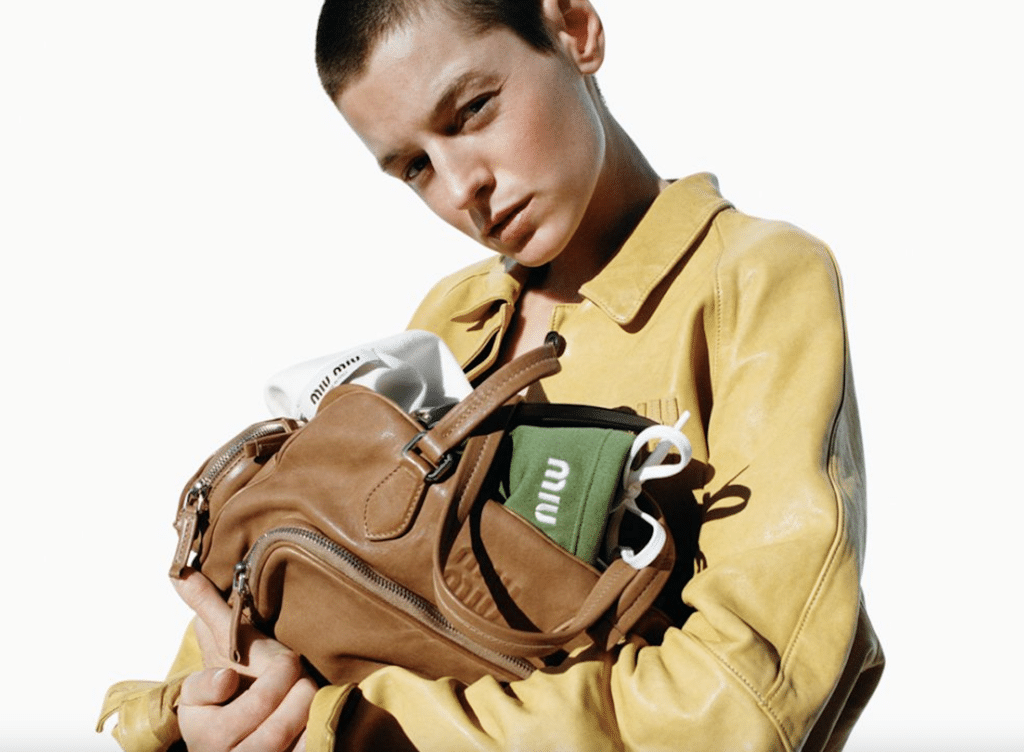A trademark lawsuit that could have had some striking implications for influencers and other famous endorsers has come to a close. In an order on July 28, the Judge Cormac J. Carney of the U.S. District Court for the Central District of California granted the joint stipulation filed by Petunia Products, Rodan & Fields, LLC, and Molly Sims, dismissing the case that Billion Dollar Brows-owner Petunia Products waged against the multi-level marketing skincare company and model-slash-beauty/wellness figure last year, accusing them of trademark infringement and dilution, unfair competition, and false advertising in connection with the marketing of a Rodan & Fields product called “Brow Defining Boost.”
In the complaint that it filed in April, Petunia Products alleged that by releasing a “Brow Defining Boost” eyebrow gel product, Rodan & Fields had infringed the “Brow Boost” trademark that it has been “extensively, exclusively, and continuously” using in connection with its Billion Dollar Brows brow primer and conditioner for nearly 20 years. To make matters worse, Petunia alleged in the lawsuit that Rodan & Fields enlisted Sims as an influencer to endorse the “Brow Defining Boost” product, including by “blogging about and promoting the infringing [Rodan & Fields] product” on her website. Petunia named Sims as a defendant, accusing her of engaging in trademark infringement for promoting the allegedly infringing product.
Sims unsuccessfully sought to escape liability, arguing in a motion to dismiss in July 2021 that (as summarized by Judge Carney) “liability for trademark infringement should not cover third parties, like her, that author sponsored blogs about a product without confirming that the product does not violate trademark rights.” She also asserted that Petunia failed to sufficiently show that consumers are likely to be confused about the source of Rodan & Fields’ product as a result of her blog post, or that she used the “Brow Boost” mark in commerce when she published a blog post about the product, and that if a court finds otherwise, “legitimate commentary” is likely to be stifled.

Unpersuaded, Judge Carney refused to dismiss Petunia’s trademark infringement and unfair competition claims in the lawsuit against influencer Sims in an August 2021 order. (He tossed out the contributory trademark infringement and Cal. Bus. & Prof. Code § 17500 claims, but gave Petunia the opportunity to amend its complaint in connection with the latter causes of action, thereby, leaving room for Petunia to try to plausibly allege those claims for a second time.) According to the court, Sims’ blog post was a paid advertisement, thereby, crossing the line “from protected consumer commentary to commercial use.”
The parties’ undisclosed settlement and subsequent dismissal, as first reported by Law360, brings the lawsuit to an early end and while it proves positive for the defendants, Northeastern University School of Law professor Alexandra Roberts says that it leaves “content creators with ongoing uncertainty about potential liability after the court initially denied Sims’ motion to dismiss.” Roberts previously stated that she was “surprised and troubled” that the judge declined to dismiss Petunia’s claims against Sims, particularly as it “seemed like a weak infringement claim to begin with.”
As for what made the lawsuit an especially notable one (compared to routine trademark cases), it is largely that, in addition to suing the manufacturer of the competing product, Petunia also asserted claims against an influencer, Sims. “This is noteworthy,” Buchalter attorneys Matthew Seror and Michael Worth stated in connection with the court’s order last year, “as brands have historically launched legal battles against each other for claims of infringement – not the celebrities or social media influencers who sponsor the products.” They note that if an influencer is big enough, asserting claims against him/her could prove attractive for plaintiffs by “provid[ing] them with another potential source from which to collect monetary damages.”
While it “may be too early to tell whether adding influencers as defendants in trademark lawsuits will become the norm,” Seror and Worth asserted that such a potential shift “could carry with it a number of implications for both influencers and brands.” For one thing, it may call on influencers “to perform more due diligence on the products or brands they are agreeing to endorse,” and may require them “to insist on strong indemnity provisions in their sponsorship agreements” if they are not doing so already. Finally, it may even encourage more sophisticated influencers and/or their management “to explore whether this type of liability may be subject to – and covered by – business insurance.”
The case is Petunia Products, Inc. v. Rodan & Fields, et. al., 8:21-cv-00630 (C.D. Cal.).











